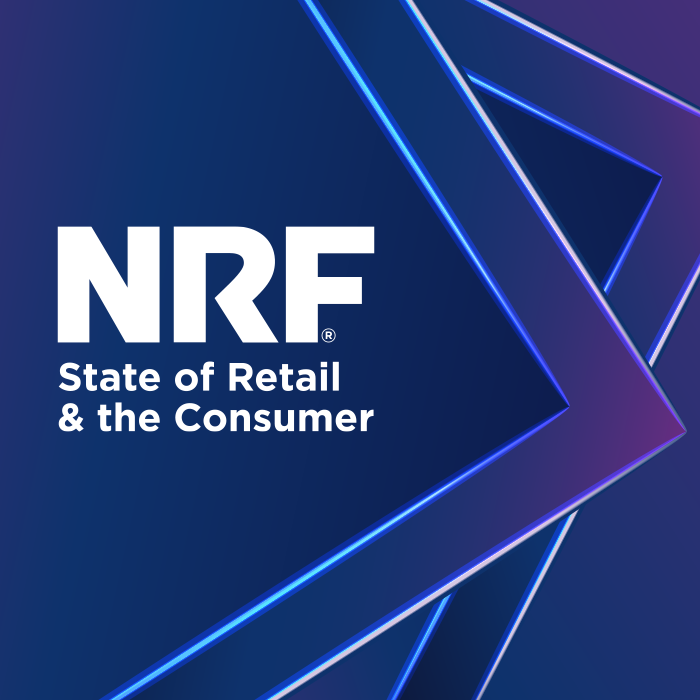Retailers Call Reported Swipe Fee Settlement with Visa and Mastercard ‘All Window Dressing and No Substance’
“This is the third attempt to settle this case and the card industry either just doesn’t get it or just doesn’t care.”
WASHINGTON, Nov. 9, 2025 — The National Retail Federation today said a proposed settlement reportedly close to being announced in a class-action antitrust lawsuit over billions of dollars in “swipe” fees charged to retailers to process Visa and Mastercard credit cards should be rejected.
“This is the third attempt to settle this case and the card industry either just doesn’t get it or just doesn’t care,” NRF Chief Administrative Officer and General Counsel Stephanie Martz said. “Once again, this proposal is all window dressing and no substance. The reduction in swipe fees doesn’t begin to go far enough, and the change in the honor-all-cards rule would accomplish nothing. If the courts can’t fix this, it’s time for Congress to take action.”
According to a report by the Wall Street Journal, swipe fees would be reduced by about one-tenth of one percentage point for “several” years.
Martz said the reduction is inadequate because it is a small fraction of the 2.35% average swipe fee charged to merchants in 2024 and equivalent to rolling back fees by only about one year — swipe fees averaged 2.26% in 2023. Swipe fee rates have grown by three times as much since 2010, when they averaged 2.02%.
The report did not say whether the settlement would do anything to change Visa and Mastercard’s practice of centrally setting swipe fee rates charged by all banks that issue credit cards under their brands, which the lawsuit argues is a violation of federal antitrust law. In addition, the reduction would apply to interchange, the portion of swipe fees that goes to card-issuing banks, but the report did not cite any limits on the portion that goes to Visa and Mastercard. That would potentially leave them free to raise that portion and wipe out any savings for merchants and their customers.
The lawsuit also contends that Visa and Mastercard’s honor-all-cards rule violates antitrust laws because it requires merchants who accept regular cards with average or lower swipe fees to also accept rewards cards and commercial cards, which can have swipe fees as high as 4% or more. In response, the Journal reported, the settlement would classify cards as credit cards with no rewards program, rewards cards and commercial cards, and let retailers choose which categories to accept.
Martz said the provision is meaningless because 85% of credit cards issued today are rewards cards and retailers have no choice but to accept them. If banks switched cards among categories, retailers could effectively be required to continue to honor all cards.
The lawsuit was filed by merchants in 2005 and the current proposal is the third attempt at a settlement. The first settlement was overturned in 2016 by the 2nd U.S. Circuit Court of Appeals after NRF and other merchant groups said it would do nothing to change Visa and Mastercard’s practice of centrally setting swipe fees. In 2024, a federal judge rejected a proposed settlement after NRF said in a letter that it still failed to end the fee-setting practice and failed to reverse the honor-all-cards rule.
NRF has long argued that centrally setting swipe fee rates and restricting processing to Visa and Mastercard’s own networks has contributed to soaring increases in swipe fees. Swipe fees for Visa and Mastercard credit cards alone quadrupled from 2010 to $111.2 billion in 2024, and total credit and debit card fees reached a record $187.2 billion last year. The fees are most retailers’ highest operating cost after labor and drive up consumer prices by nearly $1,200 a year.
With litigation having failed to make an impact on swipe fees, NRF continues to call on Congress to pass the Credit Card Competition Act. Under the bill, the nation’s largest banks would enable cards to be processed over at least one unaffiliated network like Star, NYCE or Shazam in addition to Visa or Mastercard. Doing so is expected to result in competition that would save merchants and consumers $17 billion a year.
As the leading authority and voice for the retail industry, NRF has led retailers’ fight for fair swipe fees for more than 20 years.
About NRF
The National Retail Federation passionately advocates for the people, brands, policies and ideas that help retail succeed. From its headquarters in Washington, D.C., NRF empowers the industry that powers the economy. Retail is the nation’s largest private-sector employer, contributing $5.3 trillion to annual GDP and supporting more than one in four U.S. jobs — 55 million working Americans. For over a century, NRF has been a voice for every retailer and every retail job, educating, inspiring and communicating the powerful impact retail has on local communities and global economies. nrf.com





